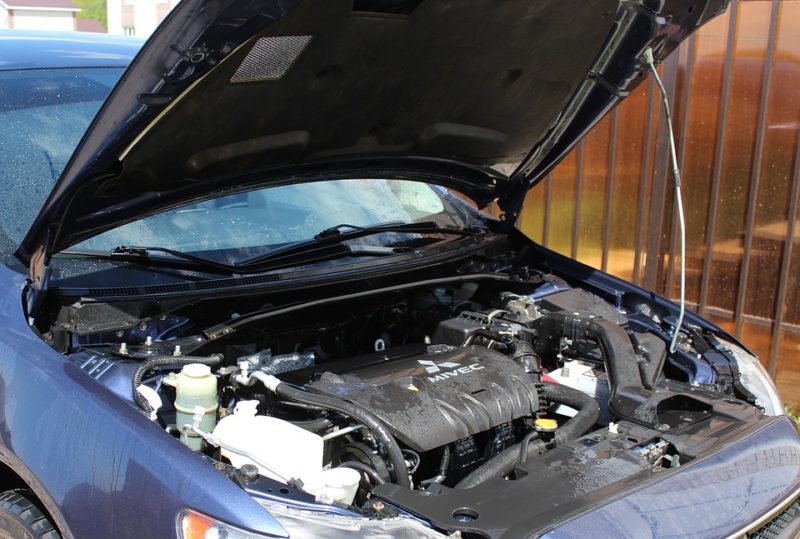Do you want to know why car overheats when the heater is on? Don’t worry, and get ready to learn about it. There are several causes for automobile overheating when the heater is on, and there is only one thing to do when the car overheats: let things cool down.
For most cases, this entails driving over to the roadside and shutting off the vehicle’s engine. The car’s overheating when the heater is on, the low coolant level, bad thermostat, and the clogged radiator are critical.
Contemporary automobiles have superior cooling systems and heat sensors that keep the engine running for most weather situations. Considering these advanced cooling and heating systems, certain cars are continuously overheating. Overheating is caused by a variety of circumstances, as discussed above. This is just an overview. Keep reading to discover more.
How Does The Heating System In A Car Work?
The core of the heater is a tiny radiator located in the vehicle’s temperature control duct. A valve in the heater core’s water intake line opens and sends the coolant through the core whenever you turn on the heater; when you turn on the heat, a regulator in the heater core’s fluid inlet tubes opens and pass the coolant through the heater core. The car’s cooling system of the engine supplies thermal energy to the core and the heating system.
Reasons Of Car Overheating When Heater Is On
Various factors cause your car heater to overheat when you turn on your car’s heater. Read the below-mentioned reasons and learn car overheats when the heater is on.
#1. Low coolant
A leaky heater core may lead to coolant loss and, as a result, engine overheating. Although less often, a heater core can get clogged to the point that coolant flow is restricted, resulting in overheating. Low coolant levels are more likely to be caused by an overabundance of air than a lack of coolant. Because air is lighter than water, it tries to climb to the most significant process level, which is the top radiator pipe. The higher hose will fill with air, and the system will collapse if the water levels drop below a particular threshold. Releasing the heater core valve would remove an additional gallon or two of water from the system, lowering fluid levels in the motor and forcing the cooling system just over the brink, causing it to stop working.
#2. Radiator is clogged
The cooling system in the car puts up a great deal of pressure. Such pressure will be adequate to force coolant through a nearly blocked radiator in normal conditions. However, releasing the heater core valve allows the pressurized fluid to flow through another path, but it always takes the least resistance. As a result, the heater vents blast a hot blast of air, and the engine overheats due to a lack of coolant circulating through the radiator.
#3. Faulty thermostat
The thermostat valve restricts continuous coolant flow even in the best conditions, and pressure keeps it shut. Because of this little constraint, engineers must undertake a delicate balancing act while developing the system. A too tiny valve will prevent water from flowing through; due to system pressure, a too-large valve will hold the valve closed. Thermostats frequently fail halfway between open and closed positions rather than entirely open or closed. A blocked radiator will have the same effect as a jammed thermostat, enabling pressure to escape through the heater core rather than the stopped valve. You may also want to read about how thermostat valve in car cooling system works.
Repairing Cost Of Car Overheating
The amount of the damages determines the cost of repairing an overheated automobile. Users might have minimized the damage if you had been cautious about turning off the engine as soon as you observed the warning light. However, it’s usually too late if you’ve followed steam coming from the engine or coolant on the floor. Minor fixes are heater line renewal, thermostat repair, cooling fan wire fixes, and antifreeze flushes.
These problems are frequently inexpensive, costing only a few dollars. Extensive engine work may be required for major repairs, on many autos, water pump repair, heater core replacement, radiator replacement, and head gasket cost of repairs between $400 and $2,000. Diesel engines, for example, maybe quite costly, costing up to 6,000 or more.
Your car’s cylinder head should be pressure checked and examined for warping if the engine has overheated severely. The engine block breaks when exposed to excessive heat or temperature fluctuations, another problem that must be addressed. If your vehicle is overheated for an extended period, the engine may seize, necessitating a total rebuild or replacement. These problems require many thousand dollars to remedy and are frequently not worth the money.
It’s A Wrap!
We are happy to know that you have learned why car overheats when the heater is on. We have discussed various reasons which help you to overcome this issue. Whenever your car is overheating, you must check the cause of overheating and then fix those causes to enjoy the heat in your vehicle. Try to resolve the issue yourself, but call the expert to fix it if you are unaware. Click on these links to read related articles; know how much to fix car heater and how does car heater work. Thank you, friends, for reading this article.

